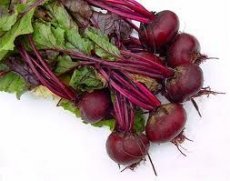New publications
Even small doses of beet juice lower blood pressure
Last reviewed: 01.07.2025

All iLive content is medically reviewed or fact checked to ensure as much factual accuracy as possible.
We have strict sourcing guidelines and only link to reputable media sites, academic research institutions and, whenever possible, medically peer reviewed studies. Note that the numbers in parentheses ([1], [2], etc.) are clickable links to these studies.
If you feel that any of our content is inaccurate, out-of-date, or otherwise questionable, please select it and press Ctrl + Enter.

A study conducted by experts from the University of Reading (UK) showed that even small doses of beetroot juice lower blood pressure. Bread with added white or red beetroot has the same effect.
Previous studies have shown that 500 ml of beetroot juice lowers blood pressure after 24 hours. Now the scientists tried to establish what the dose-dependent effect is by testing the effect of 100, 250 and 500 g of juice.
It was found that 100 g of beetroot juice led to a decrease in blood pressure in both the short-term (0-4 hours) and long-term (up to 13 hours). Bread enriched with the same amount of white or red beetroot juice reduced blood pressure in the same time frame.
The antihypertensive effect of the drink is explained by the presence of nitrate in beets, which, when entering the body, is converted into nitric oxide, and this substance increases blood flow and helps maintain low blood pressure. It is important to note that the miraculous nitrate is found in both red and white beets (white beets simply do not contain betalain, a pigment that gives a rich red color).

 [
[